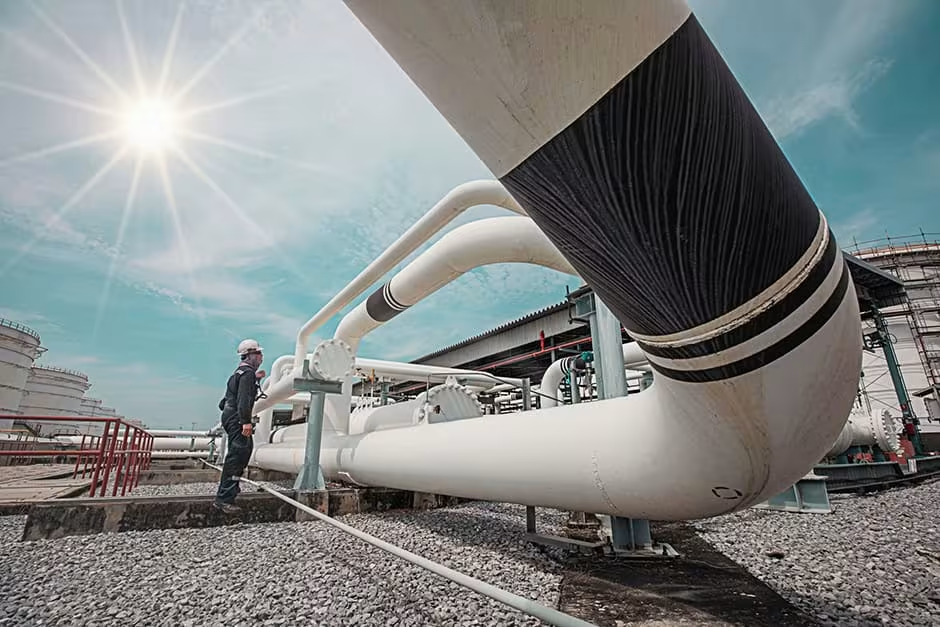Chemical plant explosions are among the most dangerous industrial accidents, often resulting in severe injuries, environmental damage, and even loss of life. These incidents can impact not only plant workers but also nearby residents and communities.
From chemical leaks to massive fireballs, these explosions often stem from a mix of human error, mechanical failures, or safety oversights. If you or a loved one has been affected by a chemical plant accident, understanding the causes—and your legal rights—is the first step toward recovery.
In recent years, high-profile incidents like the BioLab explosion in Louisiana and the West, Texas, fertilizer plant disaster have highlighted the destructive potential of these accidents. The complex nature of chemical operations, combined with the presence of hazardous materials, means that even small errors or equipment failures can escalate quickly into catastrophic events. When these disasters occur, understanding their causes and the legal rights of victims becomes crucial for those seeking justice and compensation.
Causes of Chemical Plant Explosions
Chemical plant explosions rarely happen because of one single factor. Instead, they generally result from a combination of circumstances that create dangerous conditions over time. These explosions often produce massive plumes of dark smoke that can spread toxic chemicals across wide areas. Learning about the dangerous parts of these plants can help prevent incidents and identify where liability lies when explosions occur:
- Human error: Plant operators or maintenance personnel may make mistakes when handling chemicals, monitoring equipment, or following safety protocols. They can make errors like improperly mixing chemicals, miscalculating measurements, or failing to notice warning signs of potential problems.
- Equipment failure: Aging infrastructure, faulty machinery, or malfunctioning safety systems can cause catastrophic failures. When critical equipment like pressure vessels, valves, or monitoring systems fail, the risk of explosion increases dramatically.
- Chemical reactions: Unexpected or uncontrolled chemical reactions can happen when incompatible substances mix or reaction conditions are not properly controlled. These might include water-reactive chemicals or irritant chlorine, which can create a strong chemical smell and pose serious health risks. These reactions can generate excessive heat, pressure, or explosive gases that overwhelm containment systems.
- Poor safety practices: Inadequate training, shortcuts in maintenance procedures, or failure to follow established safety protocols can create dangerous conditions. This includes improper storage of chemicals, inadequate ventilation of hazardous flumes, flawed emergency response planning, and neglecting required safety inspections.
- Environmental factors: External conditions like extreme weather, natural disasters, or power outages can compromise plant safety systems. Lightning strikes, floods, or severe storms can damage equipment or disrupt processes.
- Maintenance issues: Delayed or inadequate maintenance of critical equipment and safety systems can lead to deterioration and eventual failure. Regular inspection and maintenance are essential for preventing catastrophic failures.
- Process safety management failures: Inadequate risk assessment, poor hazard analysis, or insufficient safety protocols can create conditions where small problems escalate into major incidents.
- Communication breakdowns: Poor communication between shifts, departments, or management levels means that important information can be missed or misunderstood. Clear communication can help maintain safe operations.
Legal Rights of Victims After a Chemical Plant Explosion
Victims of chemical plant explosions have the legal right to seek compensation for their injuries, damages, and losses. Anyone injured in a chemical plant explosion may be able to pursue compensation as long as they can prove that the chemical plant engaged in negligent behavior. This involves showing that the plant owed them a duty of care, breached said duty of care, and that this breach resulted in economic or non-economic losses. Then, they can pursue compensation for the following:
- Personal injury compensation: Victims may seek compensation for medical expenses, rehabilitation costs, and long-term care needs resulting from explosion-related injuries. This includes both immediate emergency treatment and ongoing healthcare requirements. Victims may also require specialized care for chemical burns, respiratory issues, or neurological damage, which could continue for years or even decades.
- Lost income and wages: This includes current and future lost earnings due to injury-related inability to work, including reduced earning capacity if injuries prevent the victim from going back to work. This includes compensation for lost benefits, retirement contributions, and potential bonuses. Career changes forced by injuries may also warrant additional compensation for retraining or education.
- Property damage: This includes the repair or replacement costs for damaged homes, vehicles, and personal property affected by the explosion or subsequent chemical release. This may also include damage from toxic residues requiring specialized cleaning or complete replacement of contaminated items. Long-term effects on building materials may not be immediately apparent, so it’s important to work with an experienced attorney.
- Medical monitoring: This accounts for medical screening and monitoring costs for those exposed to hazardous chemicals, even if they have not developed symptoms yet. Victims may require regular testing to detect potential cancers or other delayed-onset conditions.
- Pain and suffering: Victims may seek compensation for pain, emotional suffering, mental anguish, and reduced quality of life following the explosion. The trauma of experiencing a chemical plant explosion can have lasting psychological effects, including anxiety, depression, and fear of returning to work.
- Wrongful death benefits: A tragic chemical plant explosion death can result in considerable funeral expenses, lost financial support, and compensation for loss of companionship. Survivors may also receive compensation for lost inheritance and the deceased’s pain and suffering before death.
- Environmental damage: Affected parties may seek compensation for property value losses due to environmental contamination from chemical releases. Depending on the explosion, it may be necessary to monitor soil, water, and air quality over the long term.
- Evacuation expenses: These include temporary housing, transportation, and related costs incurred during mandatory evacuations following chemical plant explosions.
- Mental health treatment: Victims deserve compensation for the psychological counseling and therapy needed to address trauma, anxiety, and post-traumatic stress disorder (PTSD) resulting from the explosion and its aftermath.
- Loss of consortium: Spouses or family members whose relationships are affected by the victim’s injuries or changed quality of life can pursue financial compensation for the loss.
- Punitive damages: Additional compensation may be awarded in cases involving gross negligence or willful disregard for safety, intended to punish responsible parties and prevent future incidents.
Steps to Take After a Chemical Plant Explosion
If you’ve been injured in a chemical plant explosion, you may be able to seek compensation for your damages. However, it is important to act fast to protect your health and legal rights. The following steps can have a massive impact on your ability to recover compensation for your injuries and losses:
- Seek immediate medical attention: Even if injuries seem minor, get medical care as soon as possible. Some chemical exposure symptoms may not be immediately apparent, and documenting your medical treatments right away can strengthen your legal case.
- Document everything: Take photos and videos of visible injuries, property damage, and the surrounding area if it is safe to do so. Keep all medical records, receipts, and correspondence related to the incident.
- Avoid making statements: Do not speak with insurance company representatives or sign any documents without legal counsel. Insurance companies will try to minimize their liability by obtaining early statements that could harm your case.
- Report the incident: File necessary reports with your employer, local authorities, and relevant regulatory agencies. Ask for copies of all official reports for your records.
- Gather witness information: Collect contact information from witnesses who saw the explosion or its aftermath. Their testimonies can provide crucial support for your claim.
- Track financial losses: Keep detailed records of all explosion-related expenses, including medical bills, lost wages, property damage, and evacuation costs.
- Contact a chemical plant explosion attorney: These cases often involve complex litigation against multiple defendants, including facility owners, equipment manufacturers, and chemical suppliers, each with their own legal teams. A qualified chemical plant explosion attorney can investigate the cause of the explosion, identify all liable parties, and pursue maximum compensation while victims focus on their recovery. Your attorney can investigate the accident thoroughly, gather expert testimony, and follow state and federal regulations to build a successful case.
- Preserve evidence: Save physical evidence related to the explosion, including damaged property, clothing worn during the incident, and any debris that may be relevant.
- Monitor your health: Keep detailed records of any ongoing symptoms, medical treatments, and health changes following the explosion.
- Follow medical advice: Strictly follow all treatment recommendations and attend all follow-up appointments. This shows that you are taking your injuries seriously and helps document their extent.
Chemical Plant Explosion FAQs
What is a chemical plant explosion?
A chemical plant explosion happens when the industrial processes involving hazardous materials go wrong, resulting in a quick release of energy and potentially toxic chemicals. These incidents can cause catastrophic damage to property and severe injuries to workers and nearby residents.
What are the worst chemical plant explosions?
The Texas City Disaster of 1947, Bhopal Gas Tragedy of 1984, and West fertilizer explosion of 2013 in Texas rank among history’s deadliest chemical plant disasters, collectively causing thousands of deaths and widespread environmental damage.
What caused the BioLab explosion?
The 2020 BioLab chemical plant explosion in Westlake, Louisiana, was triggered by Hurricane Laura’s damage to the facility. The incident released chlorine gas and required nearby residents to shelter in place.
Injured in a Chemical Plant Explosion? We Can Help
You don’t have to navigate the aftermath alone. At Morris & Dewett Injury Lawyers, our experienced legal team can help you pursue the justice and compensation you deserve. Contact an experienced industrial accident lawyer or chemical plant explosion attorney to protect your rights and gain access to all available legal remedies.





